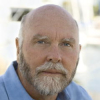Craig Venter

Craig Venter
John Craig Venteris an American biotechnologist, biochemist, geneticist, and entrepreneur. He is known for being one of the first to sequence the human genome and the first to transfect a cell with a synthetic genome. Venter founded Celera Genomics, The Institute for Genomic Researchand the J. Craig Venter Institute, and is now CEO of Human Longevity Inc. He was listed on Time magazine's 2007 and 2008 Time 100 list of the most influential people in the world. In 2010, the...
NationalityAmerican
ProfessionScientist
Date of Birth14 October 1946
CountryUnited States of America
I've had a very unusual background in science - not the usual route of planning on being a scientist from age 3. I think my story shows that success is more about personal motivation and determination than it is about where you were born or what your economic status was.
I somewhat joke that I know an awful lot because I learn from my mistakes. I just make a lot of mistakes. It's OK to fail in science just as long as you have the successes to go with the failures.
Everybody is looking for a naturally occurring algae that is going to be a miracle cell to save the world, and after a century of looking, people still haven't found it.
Nobel prizes are very special prizes, and it would be great to get one.
Synthetic biology can help address key challenges facing the planet and its population. Research in synthetic biology may lead to new things such as programmed cells that self-assemble at the sites of disease to repair damage.
I've gotten some pretty nice awards. I'm having trouble finding places to put them all.
It takes 10 kilograms of grain to produce one kilogram of beef, 15 liters of water to get one kilogram of beef, and those cows produce a lot of methane. Why not get rid of the cows?
Society and medicine treat us all as members of populations, whereas as individuals we are all unique, and population statistics do not apply.
It turns out synthesizing DNA is very difficult. There are tens of thousands of machines around the world that make small pieces of DNA - 30 to 50 letters in length - and it's a degenerate process, so the longer you make the piece, the more errors there are.
I turned 65 last year, and each year I get more and more interested in human health. For most people it happens around age 50, but I've always been a slow learner. It's critical in terms of the cost of health care.
When I started my Ph.D. at the University of California, San Diego, I was told that it would be difficult to make a new discovery in biology because it was all known. It all seems so absurd now.
We all evolved out of the same three or four groups in Africa, as black Africans.
Energy is probably the most pressing demand on our planet.
Early on, when you're working in a new area of science, you have to think about all the pitfalls and things that could lead you to believe that you had done something when you hadn't, and, even worse, leading others to believe it.